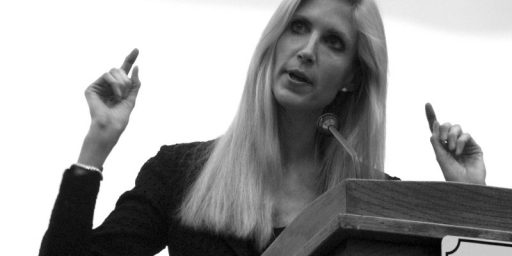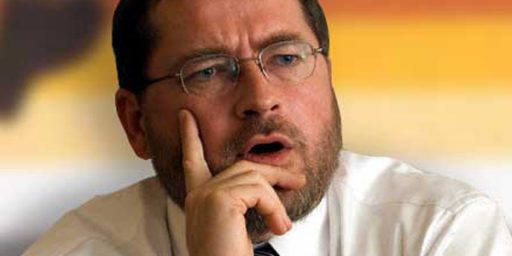Political Islam and U.S. Intelligence
Douglas Farah notes from a recent House Intelligence Committee Report that the “U.S. intelligence community has only a single office devoted to understanding political Islam,” the CIA’s Political Islam Strategic Analysis Program.
Moreover, that Program is not doing us much good, if the comments of its former director, Dr. Emile A. Nakhleh, in Harper‘s is any indication. He says that, “Political Islam is not a threat—the threat is if people become disenchanted with the political process and democracy, and opt for violence.”
Farah responds, in part:
The fundamental point is that “political Islam” is not a concept that can, at least in Salafist and many Shi’ite groups, be separted into two different worlds. Islam, to them, is political, based on Sharia law and the belief that Allah has given the perfect political framework in the Koran. All of Islam is political to jihadists.
This is a fundamenal understanding that seems to be lacking, from the 1993 WTC I attack through 9-11. Nakhleh, seeking to keep the artificial distinction between political Islam and religious Islam, helps strengthen the belief that jihadi actions are not caused by the fundamental belif system embraced by much of Islam, but rather by external, Western-created circumstances. This type of analysis has led, at least it the reporting that has become public on radical Islam, to persistent failure, over several decades, to be right or of any predictive value in relation to radical Islam.
The insidious role of the madrasas in even relatively friendly Muslim states demonstrates how artificial the mosque-state distinction is in those societies. Of course, a substantial chunk of the Islamic community is less doctrinaire, not falling into the sects that we dub “fundamentalist.” Unfortunately, the latter are growing at a rapid rate.






Farah isn’t persuasive in the least, because he commits the error he attributes to Nakhleh. How much of the dangerous belief that only Salafist Islam, and only shari’a law, are “true” Islam, is itself due to political circumstances?
Political processes inevitably lead to compromise, if they don’t break down. In that sense, Nakhleh is correct: to the extent that Islam truly enters into politics, it’s not a threat. The problem is with those who, under the guise of “politics,” really seek to shut down the political process in favor of a Robespierrean dictatorship of virtue.
Fair enough, although I think it’s splitting hairs. For fundamentalists, there is no distinction between religion and politics. The two swords theory hasn’t materialized yet in much of the Muslim world.
For fundamentalists, there is no distinction between religion and politics.
Right, in the Mideast and in America alike.
The problem, in the Mideast, is, why is fundamentalism so attractive in the first place? Islam has not always been like this, contrary to those who think the Arab legions swept through north Africa sometime in the Hoover administration.
“to the extent that Islam truly enters into politics, it’s not a threat.”
That’s funny. HAMAS and Hezbollah are true political parties engaged in a true political process and are, contrary to American Parties, completely true to those who elected them, no compromises.
No Islamic leader needs to say, “read my lips,” because when they say lets kill the Jews they mean it, it’s not just a sound bite for broadcast coverage.
Both of these parties started off secular, but as Islam is like a fungus infestation, they are now dominated by Imams. Even the midget president of Iran does nothing that is not sanctioned by the Mullahs.
There is no greater threat to the West than moderate Islam. It’s like having a mild case of cancer; eventually the entire body is consumed by disease.
See Three Threats to Modern Civilization
I think what we need is a cross-cultural movement to oppose fundamentalism, and support religion-state separation in all societies. Those on the American right who seem eager to take up this cause in other societies, should try to lead by example.
I think what we need is a cross-cultural movement to oppose fundamentalism, and support religion-state separation in all societies. Those on the American right who seem eager to take up this cause in other societies, should try to lead by example.
But our religion is true, Tano!
No, Anderson, our religion is money. that’s why we’ll never address the madrasas’ real breeding-ground: Saudi Arabia.